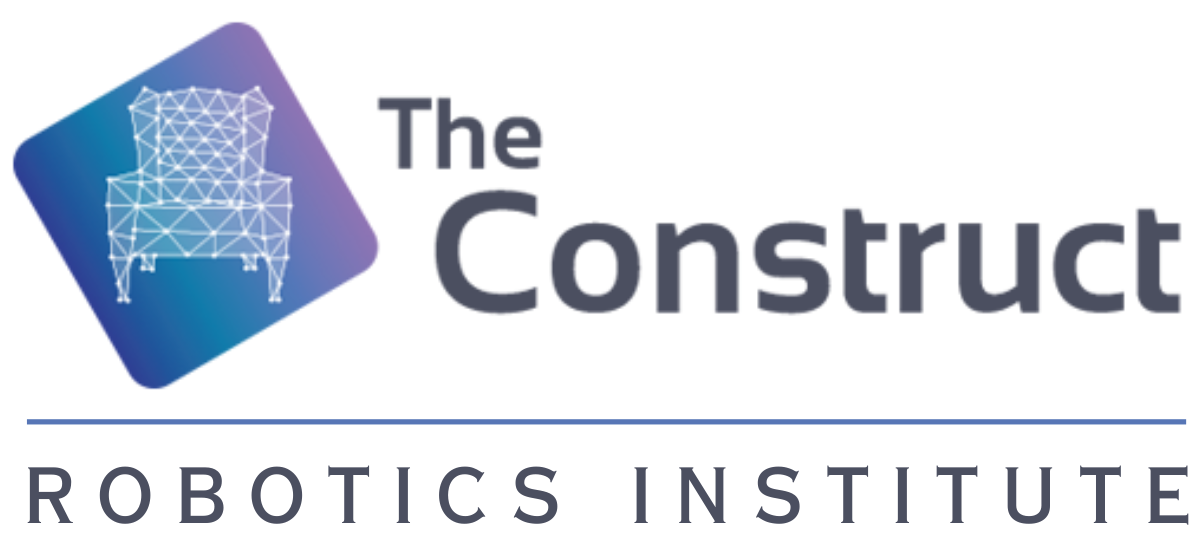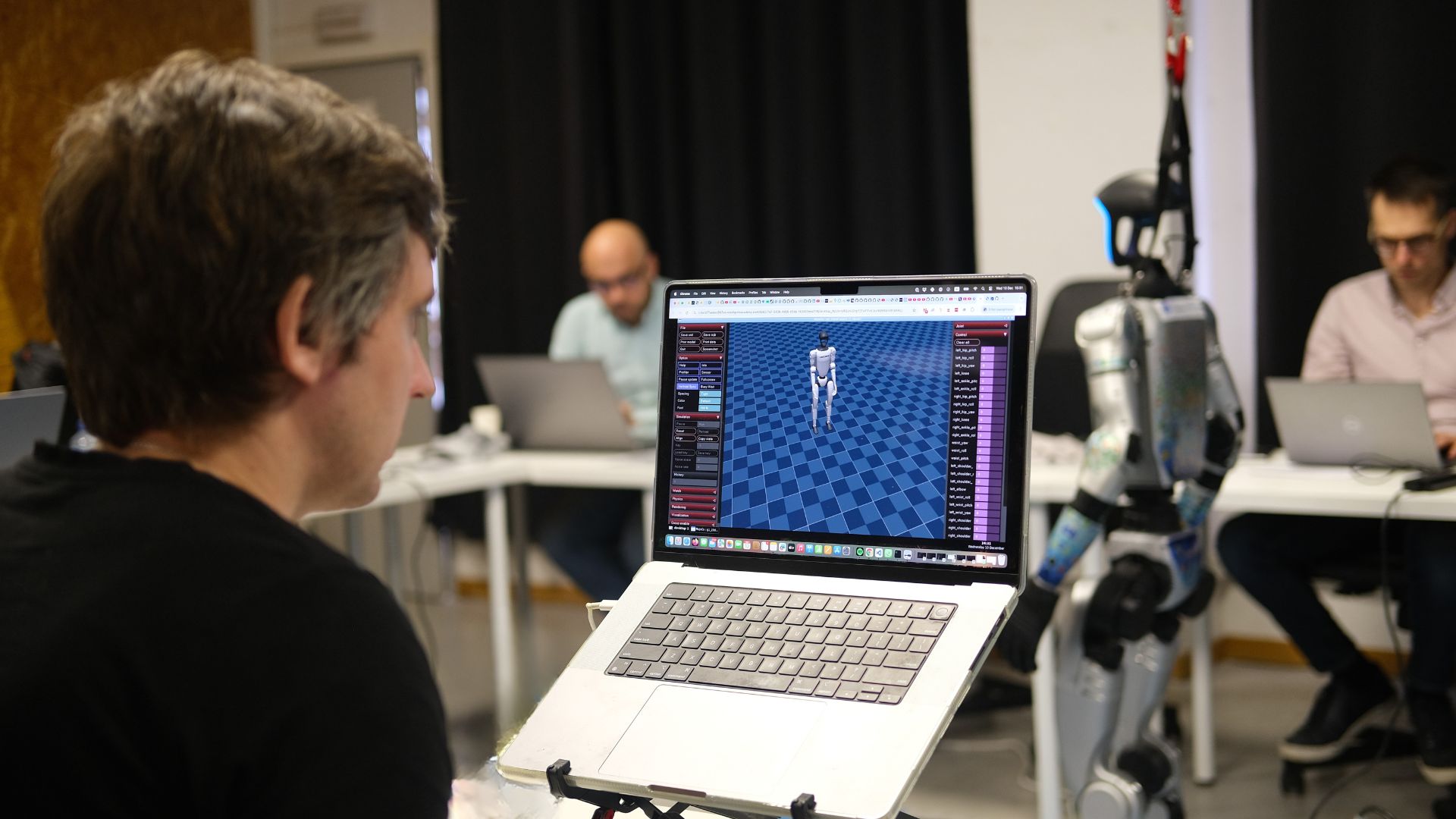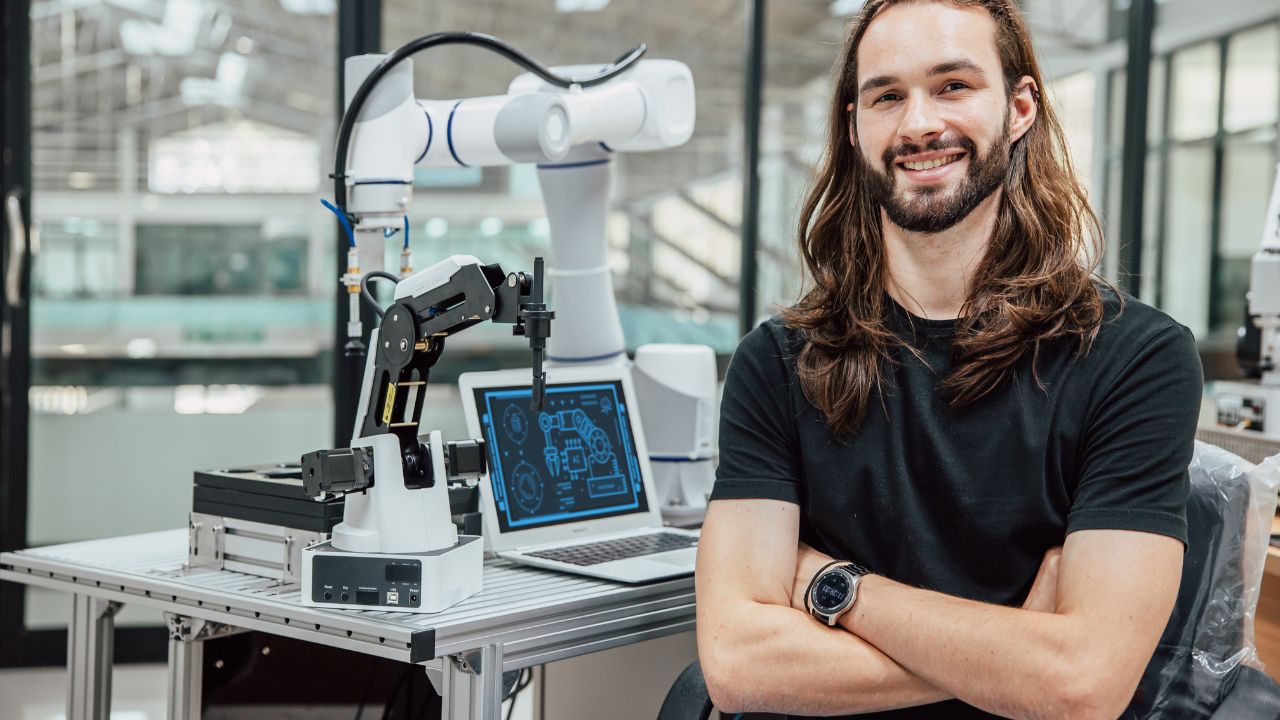In this new ROS Project you are going to learn Step-by-Step how to create a robot cube that moves and that it learns to move using OpenAI environment.
In this fourth video we continue we talk about the first script we need to do reinforcement learning with OpenAI. Specifically the main script where we import the Robot Environment that we will define in the next video and we will use Qlearn.
Moving Cube Git:
https://bitbucket.org/theconstructcore/moving_cube/src/master/
Moving Cube Training AI Git: https://bitbucket.org/theconstructcore/moving_cube_ai/src/master/
If you didn’t follow up, please check the link below for the last post
https://www.theconstruct.ai/ros-projects-openai-moving-cube-robot-gazebo-step-step-part3/
#!/usr/bin/env python
'''
Training code made by Ricardo Tellez <rtellez@theconstructsim.com>
Based on many other examples around Internet
Visit our website at www.theconstruct.ai
'''
import gym
import numpy
import time
import qlearn
from gym import wrappers
# ROS packages required
import rospy
import rospkg
# import our training environment
import old_way_moving_cube_env
if __name__ == '__main__':
rospy.init_node('movingcube_gym', anonymous=True, log_level=rospy.WARN)
# Create the Gym environment
env = gym.make('OldMovingCube-v0')
rospy.loginfo ( "Gym environment done")
# Set the logging system
rospack = rospkg.RosPack()
pkg_path = rospack.get_path('moving_cube_training_pkg')
outdir = pkg_path + '/training_results'
env = wrappers.Monitor(env, outdir, force=True)
rospy.loginfo ( "Monitor Wrapper started")
last_time_steps = numpy.ndarray(0)
# Loads parameters from the ROS param server
# Parameters are stored in a yaml file inside the config directory
# They are loaded at runtime by the launch file
Alpha = rospy.get_param("/moving_cube/alpha")
Epsilon = rospy.get_param("/moving_cube/epsilon")
Gamma = rospy.get_param("/moving_cube/gamma")
epsilon_discount = rospy.get_param("/moving_cube/epsilon_discount")
nepisodes = rospy.get_param("/moving_cube/nepisodes")
nsteps = rospy.get_param("/moving_cube/nsteps")
running_step = rospy.get_param("/moving_cube/running_step")
# Initialises the algorithm that we are going to use for learning
qlearn = qlearn.QLearn(actions=range(env.action_space.n),
alpha=Alpha, gamma=Gamma, epsilon=Epsilon)
initial_epsilon = qlearn.epsilon
start_time = time.time()
highest_reward = 0
# Starts the main training loop: the one about the episodes to do
for x in range(nepisodes):
rospy.logdebug("############### START EPISODE=>" + str(x))
cumulated_reward = 0
done = False
if qlearn.epsilon > 0.05:
qlearn.epsilon *= epsilon_discount
# Initialize the environment and get first state of the robot
observation = env.reset()
state = ''.join(map(str, observation))
episode_time = rospy.get_rostime().to_sec()
# for each episode, we test the robot for nsteps
for i in range(nsteps):
rospy.loginfo("############### Start Step=>"+str(i))
# Pick an action based on the current state
action = qlearn.chooseAction(state)
rospy.loginfo ("Next action is:%d", action)
# Execute the action in the environment and get feedback
observation, reward, done, info = env.step(action)
rospy.loginfo(str(observation) + " " + str(reward))
cumulated_reward += reward
if highest_reward < cumulated_reward:
highest_reward = cumulated_reward
nextState = ''.join(map(str, observation))
# Make the algorithm learn based on the results
rospy.logwarn("############### state we were=>" + str(state))
rospy.logwarn("############### action that we took=>" + str(action))
rospy.logwarn("############### reward that action gave=>" + str(reward))
rospy.logwarn("############### State in which we will start nect step=>" + str(nextState))
qlearn.learn(state, action, reward, nextState)
if not(done):
state = nextState
else:
rospy.loginfo ("DONE")
last_time_steps = numpy.append(last_time_steps, [int(i + 1)])
break
rospy.loginfo("############### END Step=>" + str(i))
#raw_input("Next Step...PRESS KEY")
#rospy.sleep(2.0)
m, s = divmod(int(time.time() - start_time), 60)
h, m = divmod(m, 60)
rospy.logwarn ( ("EP: "+str(x+1)+" - [alpha: "+str(round(qlearn.alpha,2))+" - gamma: "+str(round(qlearn.gamma,2))+" - epsilon: "+str(round(qlearn.epsilon,2))+"] - Reward: "+str(cumulated_reward)+" Time: %d:%02d:%02d" % (h, m, s)))
rospy.loginfo ( ("\n|"+str(nepisodes)+"|"+str(qlearn.alpha)+"|"+str(qlearn.gamma)+"|"+str(initial_epsilon)+"*"+str(epsilon_discount)+"|"+str(highest_reward)+"| PICTURE |"))
l = last_time_steps.tolist()
l.sort()
#print("Parameters: a="+str)
rospy.loginfo("Overall score: {:0.2f}".format(last_time_steps.mean()))
rospy.loginfo("Best 100 score: {:0.2f}".format(reduce(lambda x, y: x + y, l[-100:]) / len(l[-100:])))
env.close()
This the script for training.
From line 42 to line 49, we read the parameters for the q-learn algorithm from the parameter server which we’ll discuss later.
The training process is done from line 59 to line 108. For each step, the algorithm decides which action to take based on the current state, then it measures the observation, decides if the simulation is done and calculates rewards. It will keep learning to optimize the reward it gets.
The implementation of the q-learn algorithm was done by Victor Mayoral Vilches.
''' Q-learning approach for different RL problems as part of the basic series on reinforcement learning @ Inspired by https://gym.openai.com/evaluations/eval_kWknKOkPQ7izrixdhriurA @author: Victor Mayoral Vilches <victor@erlerobotics.com> ''' import random class QLearn: def __init__(self, actions, epsilon, alpha, gamma): self.q = {} self.epsilon = epsilon # exploration constant self.alpha = alpha # discount constant self.gamma = gamma # discount factor self.actions = actions def getQ(self, state, action): return self.q.get((state, action), 0.0) def learnQ(self, state, action, reward, value): ''' Q-learning: Q(s, a) += alpha * (reward(s,a) + max(Q(s') - Q(s,a)) ''' oldv = self.q.get((state, action), None) if oldv is None: self.q[(state, action)] = reward else: self.q[(state, action)] = oldv + self.alpha * (value - oldv) def chooseAction(self, state, return_q=False): q = [self.getQ(state, a) for a in self.actions] maxQ = max(q) if random.random() < self.epsilon: minQ = min(q); mag = max(abs(minQ), abs(maxQ)) # add random values to all the actions, recalculate maxQ q = [q[i] + random.random() * mag - .5 * mag for i in range(len(self.actions))] maxQ = max(q) count = q.count(maxQ) # In case there're several state-action max values # we select a random one among them if count > 1: best = [i for i in range(len(self.actions)) if q[i] == maxQ] i = random.choice(best) else: i = q.index(maxQ) action = self.actions[i] if return_q: # if they want it, give it! return action, q return action def learn(self, state1, action1, reward, state2): maxqnew = max([self.getQ(state2, a) for a in self.actions]) self.learnQ(state1, action1, reward, reward + self.gamma*maxqnew)
We put the parameter for the q-learn separately in a file called one_disk_walk_openai_params.yaml under the config folder, so you can tweak the parameters much easier.
moving_cube: #namespace
running_step: 0.04 # amount of time the control will be executed
pos_step: 0.016 # increment in position for each command
#qlearn parameters
alpha: 0.1
gamma: 0.7
epsilon: 0.9
epsilon_discount: 0.999
nepisodes: 500
nsteps: 1000
number_splits: 10 #set to change the number of state splits for the continuous problem and also the number of env_variable splits
running_step: 0.06 # Time for each step
wait_time: 0.1 # Time to wait in the reset phases
n_actions: 5 # We have 3 actions
speed_step: 1.0 # Time to wait in the reset phases
init_roll_vel: 0.0 # Initial speed of the Roll Disk
roll_speed_fixed_value: 100.0 # Speed at which it will move forwards or backwards
roll_speed_increment_value: 10.0 # Increment that could be done in each step
max_distance: 2.0 # Maximum distance allowed for the RobotCube
max_pitch_angle: 0.2 # Maximum Angle radians in Pitch that we allow before terminating episode
max_yaw_angle: 0.1 # Maximum yaw angle deviation, after that it starts getting negative rewards
init_cube_pose:
x: 0.0
y: 0.0
z: 0.0
end_episode_points: 1000 # Points given when ending an episode
move_distance_reward_weight: 1000.0 # Multiplier for the moved distance reward, Ex: inc_d = 0.1 --> 100points
y_linear_speed_reward_weight: 1000.0 # Multiplier for moving fast in the y Axis
y_axis_angle_reward_weight: 1000.0 # Multiplier of angle of yaw, to keep it straight
It might take a lot of time to tune the parameters. In ROSDS, we offer the gym computer feature to help you run training with different parameters parallelly. If you are interested, please check our paid program.
If you want to learn more applications with OpenAI in ROS, please check our OpenAI course in the robot ignite academy.
Edit by Tony Huang.
[irp posts=”10198″ name=”ROS Projects OpenAI with Moving Cube Robot in Gazebo Step-by-Step #Part5″]

![[ROS-Projects]-OpenAI-with-Moving-Cube-Robot-in-Gazebo-Step-by-Step-Part4 [ROS-Projects]-OpenAI-with-Moving-Cube-Robot-in-Gazebo-Step-by-Step-Part4](https://www.theconstruct.ai/wp-content/uploads/2018/07/ROS-Projects-OpenAI-with-Moving-Cube-Robot-in-Gazebo-Step-by-Step-Part4.png)





0 Comments
Trackbacks/Pingbacks